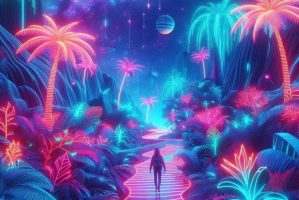14 januari 2025 10:20
Topic starter
Meldingen
Alles wissen
Q&A
1
Berichten
2
Gebruikers
0
Reactions
559
Bekeken
0
Why are the effects of psychedelics different for everyone?
1 antwoord
0
18 februari 2025 11:37
The effects of psychedelics vary from person to person due to a combination of biological, psychological, and environmental factors. Here’s a breakdown of the key reasons:
1. Individual Brain Chemistry & Genetics
- Neurotransmitter Levels: Psychedelics like psilocybin (magic mushrooms) and LSD primarily affect serotonin (5-HT2A) receptors in the brain. Differences in baseline serotonin levels or receptor density can alter the experience.
- Genetic Variability: Some people have genetic variations in their 5-HT2A receptor genes or liver enzymes (like CYP2D6), which influence how quickly they metabolize psychedelics.
- Tolerance & Experience: If someone has used psychedelics recently, their serotonin receptors may be downregulated, leading to a weaker effect.
2. Psychological State (Set)
- Mood & Mindset: Anxiety, depression, or excitement before a trip can dramatically shape the experience.
- Personality Traits: Open-mindedness and emotional resilience may contribute to deeper, more positive trips, while those prone to anxiety or paranoia might struggle with challenging experiences.
- Expectations & Beliefs: If a person expects a mystical experience, they may be more likely to have one due to the power of suggestion and placebo effects.
3. Environment (Setting)
- External Stimuli: A quiet, safe, and comfortable space promotes relaxation, while chaotic or unfamiliar environments can cause anxiety or paranoia.
- Company & Social Influence: Being around trusted people (or a guide) can enhance feelings of safety, while being with strangers or skeptics might induce discomfort.
- Music & Visuals: Sound, lighting, and visuals can greatly influence the nature of hallucinations and emotions.
4. Dosage & Substance Purity
- Dosage Strength: A 1g dose of mushrooms vs. a 5g dose leads to vastly different experiences. Higher doses increase the likelihood of ego dissolution or mystical states.
- Substance Purity: Some LSD may be mixed with other compounds, altering effects. Mushrooms can also vary in potency depending on the strain.
- Route of Administration: Whether taken as tea, eaten raw, or taken in a capsule affects onset and intensity.
5. Prior Psychedelic Experience
- First-time Users vs. Experienced Psychonauts: Beginners may be overwhelmed, while experienced users may have more control over their trips.
- Integration of Past Trips: Someone who has learned how to navigate altered states may experience more profound insights rather than confusion.
6. Biological Factors
- Metabolism: A fast metabolism may shorten the trip, while a slow one may prolong effects.
- Hormonal Fluctuations: Menstrual cycles, stress hormones (cortisol), or fasting states can all influence the intensity of the trip.
- Medication Interactions: Some psychiatric medications (e.g., SSRIs) blunt the effects of psychedelics, while others (e.g., MAOIs) can dangerously amplify them.
Conclusion
The psychedelic experience is shaped by a complex interplay of biology, psychology, and environment. Even the same person can have vastly different experiences on different occasions due to these factors. This is why intention setting, preparation, and a safe environment are crucial for a positive and transformative journey.
Also read

Inloggen of Registreren aub to reply to this topic.